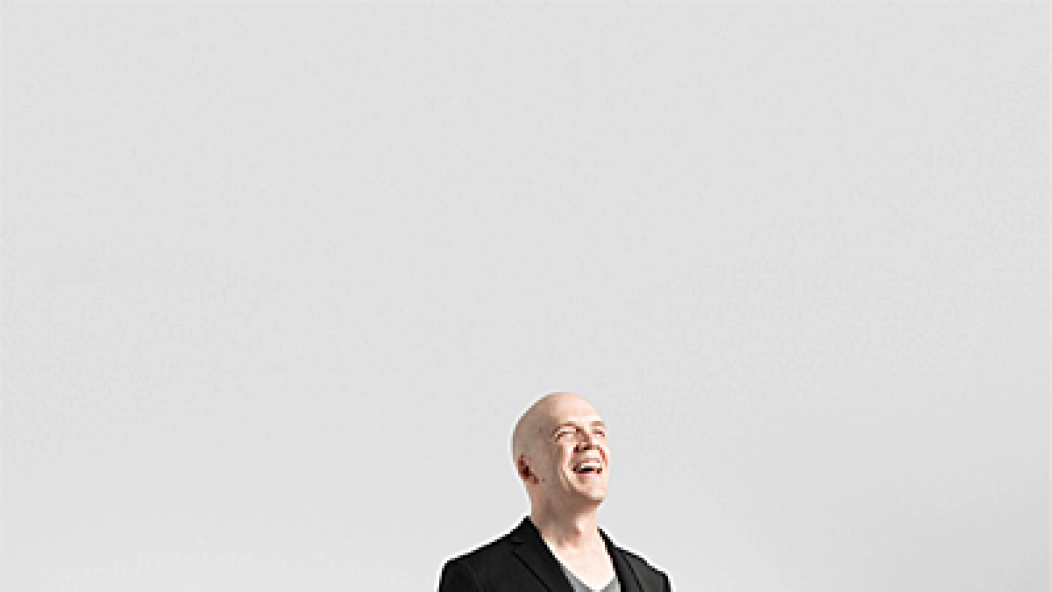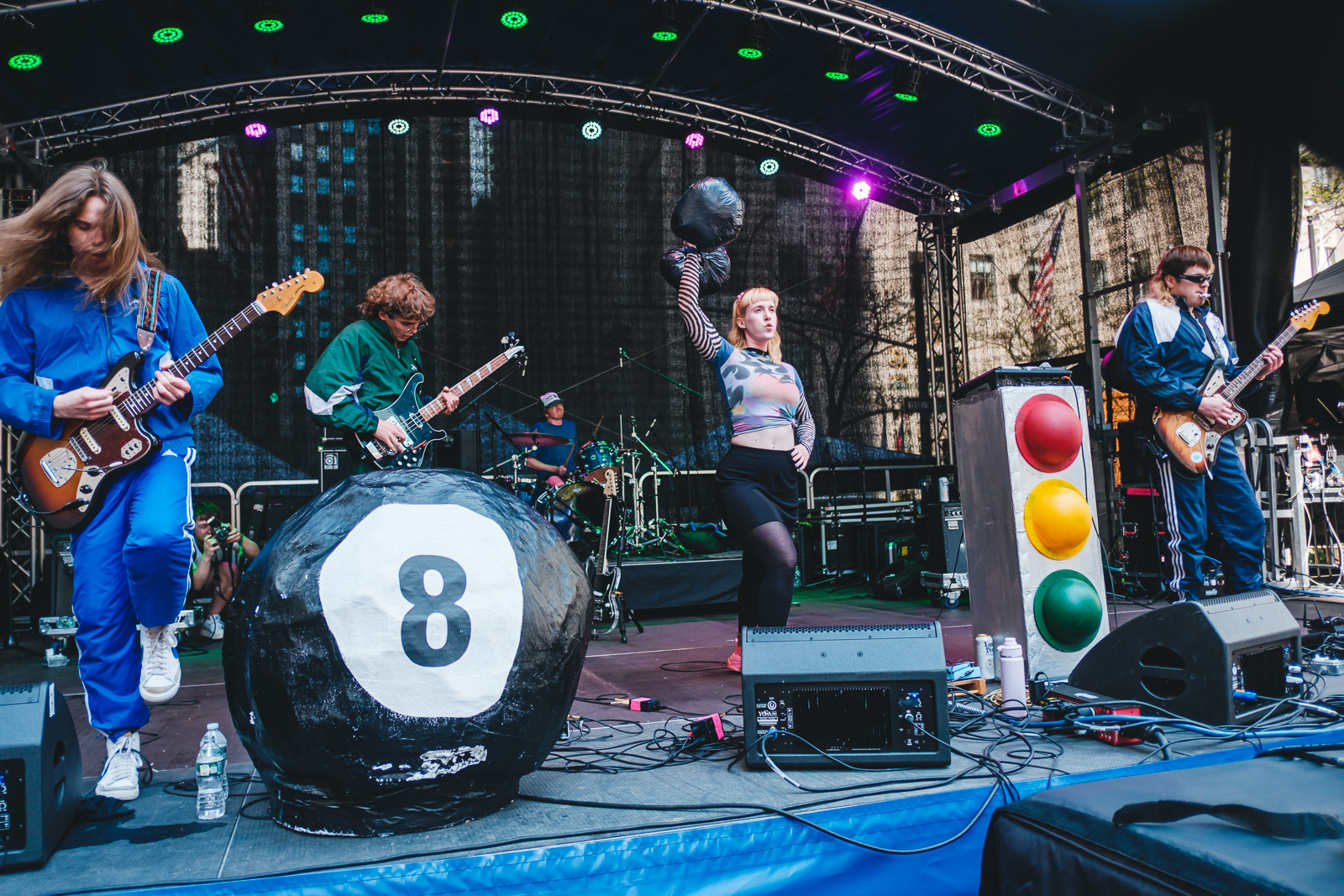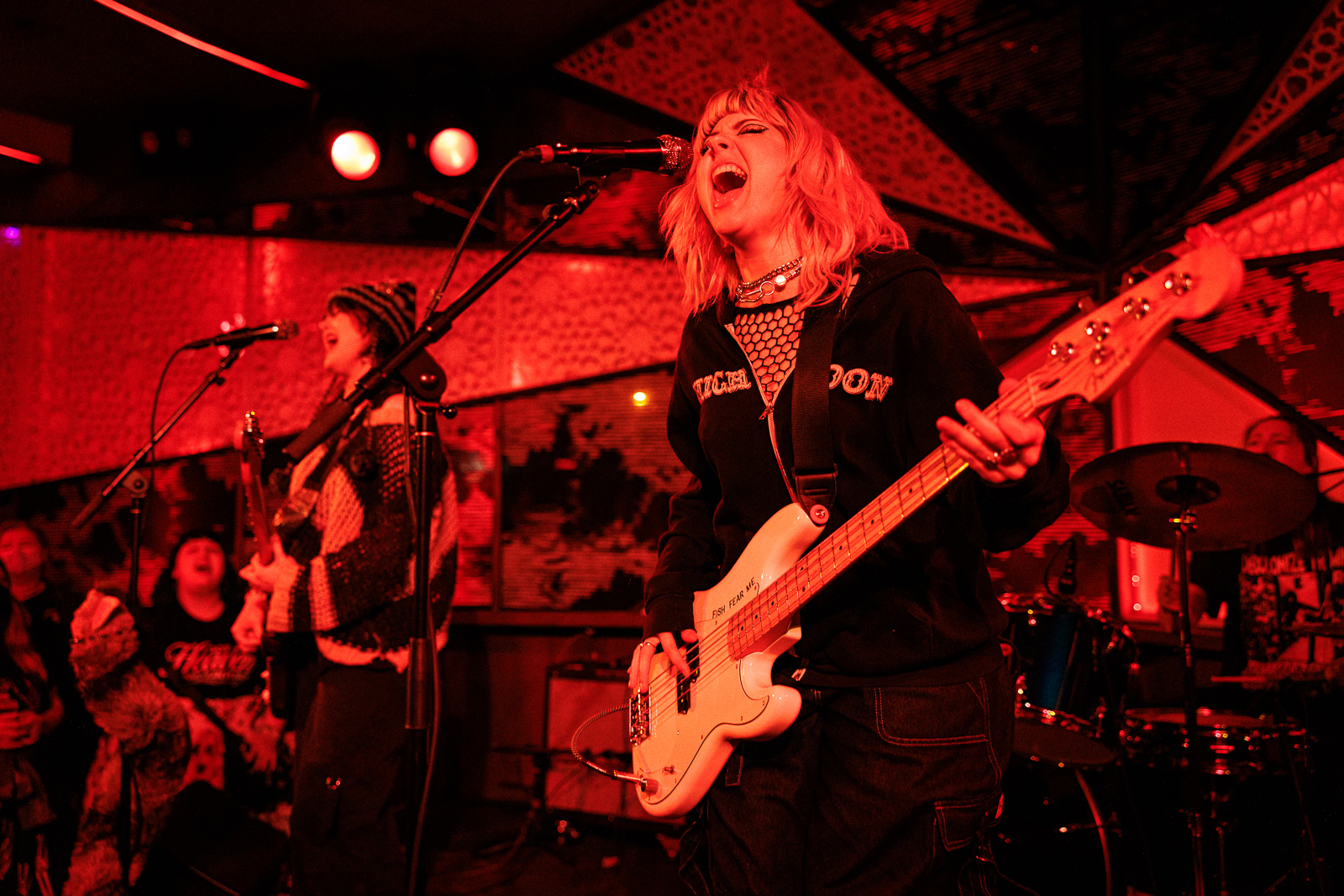
A Path to "Empath": Devin Townsend Talks New Album, New Sound, and New Outlook
…
Devin Townsend needs no introduction, but his new album Empath (released today) certainly does.
Empath sees Townsend entering a new era of sound, theater, and drama — borrowing from prior works, in part, but also charging forward into unknown Townsend territory where the landscapes are delightfully cartoonish and the atmospherics just as expansive. This album is a mind-bender for sure, and while applying that term to Townsend’s music make sense overall, Townsend’s own thinking about his music is much more clear-cut. Be sure to check out Langdon’s full review of Empath.
We had the honor of conversing with Townsend about Empath and what went into the album emotionally, musically, and logistically.
…
…
Empath is the first Devin Towsend album since 2007, I think, with Ziltoid — is there any reason for the gap between releases under that name, or does the removal of the word “project” have any significance?
Well, I can think of a really romantic reason for that — it makes it sound like it was intentional, and not me being completely scattered — I think, if we’re just going to be honest with each other, I’ve been trying to figure out what to call myself since the beginning, so here we are. You know, Devin Townsend Project… some people had said, “okay, that was that band,” but to be honest, Ki and Ghost and Deconstruction was all different people. Maybe on a practical level I’ve been trying over time to get to the point where I can just be myself, and that’s just the process I needed to go through.
As far as you mentioning different people coming in and out of Devin Townsend Project, I read that for Transcendence you made room in the limelight, so to speak, for the creative insight of other musicians/artists. Is that the same story with Empath now, especially considering all the guest appearances?
The easiest way for me to answer that is to show you that every record I do is essentially a reflection of whatever it is I’m going through at that time, and more precisely, whatever it is that inspires me at that time. Over the past eight years, man, with Devin Townsend Project, I toured so much that my reference for influence was only the band. By the time I got to Transcendence, I had run out of things to say about. So, I drew on the band as a source of creative inspiration — that included, with [Transcendence], the ability for them to interpret their parts, in some sense. If we look at Empath, it’s very similar in that way, where I have with Empath said to some of the people involved: “here’s the lane I want you to stay in, but in that lane, you can go as fast as you want,” you know what I mean?
That’s the best way to explain how I open material, whether on Transcendence or Empath or a lot of things now — it’s the best way to explain how I incorporate other people’s ideas, because I’m super vision-based when it comes to writing, and as a result of that, it has to be a certain way. But that doesn’t mean that the fills can’t change, it doesn’t mean the harmony is a little different or whatever, but the overall vision will always be what it’s going to be.
That makes sense, and a little bit before that, you mentioned that… maybe a good word would be “visionary,” where you imagine something in your head and then you can play it out, or build toward that goal. Is there also a story element to Empath, both from your perspective and the perspective of listeners?
Yeah, I don’t think in the traditional sense that [Empath] is a concept record like Tommy or Operation Mindcrime or anything like that; but, what typically I’ve done in the past, is I’m interested in themes because it gives me something to fill in the blanks with. So, for example, with Casualties of Cool I had this idea half-way through that there’s this moon, and it’s made up of the bones of these men who had fallen to the wiles of this sort-of siren that lived on the moon, and the end result of that is that the guy builds a bridge and gets away from it and whathaveyou. But that’s not an overt theme on the record as much as just something that I use to inspire myself lyrically and musically.
In the same way, Empath has something like that — it would be about a person who is adrift or lost on an ocean, and the ocean represents potential, and this island he encounters is an analogy for his mind that was brought into existence just by the fact that he had a thought. By visiting this island, he’s forced to confront various elements of his own nature, from beautiful things to brutal things. By the end of it, recognizing that he has to let both of those things go and connect to his higher intuition — that was the overarching not story but theme that I found creatively engaging. So, the record resonates with that, down to the artwork and songs like “Singularity,” but it’s not an overt concept.
What I also wanted to touch on, which I think is related, is the “soundstage” of Devin Townsend — things like the super-saturated layering and really operatic choruses and a lot of the lofty singing that I think roll up under the Devin Townsend headline, so to speak. Those all show up on Empath, but you had said on YouTube that Empath is different than any record you’ve released so far. I’m wondering what it is about the sound of Devin Townsend now on Empath that’s different from even two or three years ago?
I think I’m more willing to face my fear, than I was. I think that over the past ten years, I have willingly put out of my mind any parts of my personality that were questionable. And, I think the fact is, in that sense, you end up representing music that is perpetually positive. I don’t know if that’s the type of positivity that has a type of shelf-life I’m interested in — I think the type of positivity that I’m interested in aiming for, and very clearly have been desiring, requires not ignoring the parts of your personality that you’re uncomfortable with but analyzing and making peace with them, to a certain extent. That leap is something I’ve been afraid to do, or something I’ve been too fatigued to do, for the past decade. And the difference between what I’ve been doing over the past decade and now is, this time, I was consciously more, like, “make peace with yourself on some level, and accept that maybe we’re not saints or perfect enlightened beings, we’re just human beings who fuck up who are trying to fuck up less,” [laughs]. So, I think the ability to accept that about myself certainly contributed to [Empath] being a little different than the others.
Interesting, and I like that you called out positivity, because Empath really bleeds positivity, but I was interested in the duality between two adjacent tracks “Hear Me” and “Why?” — “Hear Me” blew me away with how aggressive and ripping it was, but at the same time, “Why?” was almost a movie score or fairy tale experience for me. They seemed like two ends of a pole, so to speak.
And that was one of the fears I think I needed to address — when I say “fears,” what I mean is trepidation. I grew up with musical theater and love Disney stuff like Fantasia and all that, which is typically seen as really cheesy. I think that, specifically within the metal scene, there are certain parameters that I found (as a result of being in the metal scene for so long) that are pretty stringent. I remember when I was a teen, I really loved Enya, but it wasn’t really what we talked about when everyone was out back smoking cigarettes, you know? It was more about Mötley Crüe and Metallica [laughs] and Enya was sort of something you kept to yourself.
As I have gotten older, my desire to participate in those sorts of cliquey things…. I just… don’t care. I don’t care anymore [laughs]. You know what, I really like ripping death metal stuff, but also really like musical theater and Enya, so… here’s both!
…
…
I’m wondering, does Empath represent your magnum opus in a way, or does it at least contain one? How would you approach your music under the “magnum opus” concept?
I’ve never thought of it — if it does, it’s unintentional. Everything that I do is just what seems to be required at that particular point in my life. The parameters of those things shift every time, and a lot of the process… we talk about “uncovering” what it is that will make this as accurate as it needs to be, and that can be frustrating. For example, for Empath, it went down a ton of different avenues, a lot of which ended up fruitless [laughs] — I was thinking, “oh, clearly this record requires me to do x,” and then I’d spend a bunch of time and money and energy on something, then I’d get 80% into it and be like, “nope, that’s actually not right, that doesn’t work.” Then, I’d have to pull it back and go down another avenue — but as a result of that, I find what the process is really about is taking away the things that it isn’t so that you’re left with what it is.
And that’s what happened when I turned 46, I don’t think there was any thought of this being better or worse or more complicated or less complicated — this is what this particular period in my life has asked for, and we’ll see where it goes next.
I’m wondering — and you mentioned this earlier — that you kind of had a vision for what Empath would be. At the same time, it feels like a lot of this stuff came up organically and as it became present in your artistic awareness, so what’s the blend of engineering and artistry on Empath, executing a plan or letting it grow?
Sometimes I’ll have a vision of what I want a part or song to sound like, but more often than not, I have an idea of what I want it to make me feel when it’s done. That can be something in the beginning as vague as “I want this to make me feel anxious,” or “I want this to make me feel peaceful.” As a result of that, I follow it where it wants to lead; typically, the creative avenues that it leads me down, it takes me a relatively short amount of time to write this stuff. It takes just forever to record it and to get the logistics straight and the players and the mix and the editing: it’s a very complicated technical process that I think requires a lot of left-brain/right-brain type of exercises. If there’s anything I can say that [Empath] had more than the other recent ones is that: left-brain/right-brain arm-wrestling.
The last thing I wanted to talk about is the nature of positivity in metal — not always has the Devin Townsend name released strictly positive music, and there’s Strapping Young Lad too, which can be described as anti-positive in some ways. It’s interesting to see that Empath is gleaming with this feeling of being “up” or very content with surroundings and other people. What do you think generally about positivity and how it relates to Empath?
Good question. I’ll start by saying that there are some artists I know who say that they are heavy metal artists, that’s what their trip is, right? I don’t know if I’ve said that in a long time — there’s certainly an element of heavy metal that I love and have been doing for years and is certainly a part of what I do. I don’t want to piss on anyone’s parade by saying that I’m trying to change heavy music to being a “positive” thing because that’s not my goal. My goal is to do what seems to be the path of least resistance in my creative mind. I think that [with] Empath, “positivity” isn’t the word I’d use because it’s important for me to have both sides of the equation, that’s why in the arts there are monsters as well as benign-looking creatures.
The thing I was trying to achieve with [Empath] was hope. I don’t know necessarily whether that’s a fundamentally positive thing, but I think what it does do is it allows me to express things that are relentless like Empath is without needing to ignore the fact that life can be very chaotic and complicated and overwhelming. And if through that intensity we can maintain a sense of, “okay, well I’m not going to kill myself,” I see that as positive for sure, but it’s not like… something I was very conscious of with this record is that I didn’t want to make a record that was like: “everything’s alright, everything’s going to be okay!” Because that’s a popular sentiment — “think positive” and “everything’s peaches and cream all the time” — that works for a certain demographic (if you’re white and male, it works pretty good sometimes) but there are a lot of people that this doesn’t necessarily resonate with. As opposed to using that as a statement (“everything’s going to be fine”), sometimes things are not okay.
But, we can get through it, because your heart is bigger than your fear [laughs].
I picked that up big-time on the track “Hear Me” — I like that duality that approaches you when you hear it in combination with “Why?” which is much different. And maybe the word “metal” is not the most accurate, but maybe the word “extreme?”
For sure.
Not that “extreme” has to connote feelings of negativity so to speak, but also it doesn’t have to be positive, just something turned up to such a degree that it almost becomes overwhelming whether positive or negative.
For sure. That’s why songs like “Hear Me” and the grind sections in “Singularity” and “Genesis” — those are really important parts to this record, and I remember when I was first putting it together, the label was like, “why would you put something like that on this album, what you’re making is really this artistic proggy sort of thing?” Well, because I think I’ve been guilty of not juxtaposing one thing with the other, it’s always been one or the other in my work. I think as compartmentalized as that can be — it gives people bite-sized versions of certain emotions — what was important for me on [Empath] was to make more of an observation on what I feel in society at large right now. There’s not an absence of that sort of chaos, it’s mixed into it all until it becomes, like you say, overwhelming.
But, I think the point (if there is one I hope to make with this record) is that truly everyone is fighting their own battle, and the amount of people that I’ve known that suffer depression, including myself, and the amount of people that I’ve known who have tried to kill themselves or have killed themselves… it’s really challenging to see that so prevalent. I think in my experience, man, I don’t know how much it helps to say “everything is going to be okay” when may be it isn’t.
And I think that what maybe is a more realistic thing to say is: “everything is crazy, but I’ll hang on if you do.”
…
Empath released today via HevyDevy Records.

…
Support Invisible Oranges on Patreon.
…











